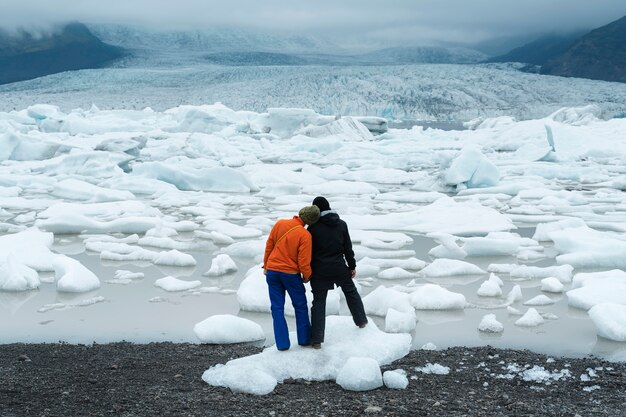Interesting Facts about Iceland

Iceland is home to approximately 130 active and inactive volcanoes.
It is the most sparsely populated country in Europe, with only about 350,000 people.
Iceland’s capital, Reykjavik, is the northernmost capital city in the world.
The country is known as the land of fire and ice due to its contrasting landscapes of volcanoes and glaciers.
Iceland has the largest glacier in Europe, called Vatnajökull.
It is the only country in the world where the Mid-Atlantic Ridge is visible above sea level.
The Icelandic alphabet has 32 letters, including some unique characters like Þ and Ð.
Icelanders have one of the highest life expectancies in the world, with an average of 83 years.
Approximately 10% of Iceland’s land area is covered by glaciers.
Geothermal energy provides around 85% of Iceland’s total primary energy supply.
The country has an abundance of natural hot springs, perfect for relaxing in.
Iceland has no standing army and is considered one of the most peaceful countries in the world.
It is home to the famous Blue Lagoon, a geothermal spa known for its mineral-rich waters.
Icelanders believe in elves and hidden people, and it is common to find small elf homes in the countryside.
The Great Geysir in Iceland is the original geyser that all other geysers are named after.
Iceland has a renewable energy goal of becoming carbon-neutral by 2050.
The country experiences the phenomenon of the midnight sun during the summer months, where the sun can be visible for 24 hours.
Interesting Facts about Iceland part 2
Iceland has the highest concentration of waterfalls in Europe, with famous ones like Gullfoss and Seljalandsfoss.
It is home to Puffins, adorable birds often associated with the country.
The Icelandic language has remained relatively unchanged for centuries and is similar to Old Norse.
Iceland has a strong literary tradition, with one in ten Icelanders publishing a book in their lifetime.
The country has the world’s largest population of Atlantic puffins, estimated at more than 10 million birds.
Icelanders enjoy a traditional dish called hákarl, which is fermented shark meat.
The country has a low crime rate, making it a safe destination for travelers.
Icelandic horses are a unique breed known for their small stature and ability to perform five gaits.
Iceland was the first country in the world to elect a female president, Vigdís Finnbogadóttir, in 1980.
The Icelandic language has its own version of Santa Claus called Jólasveinar, who is a mischievous troll.
Icelanders celebrate a festival called Þorrablót in the middle of winter, where traditional Icelandic food is served.
The Icelandic Parliament, called Alþingi, is one of the oldest in the world, established in 930 AD.
Iceland’s cuisine includes unique dishes like fermented shark, smoked lamb, and sheep’s head.
The country has a tradition of storytelling, with many epic sagas originating from Iceland.
Iceland has a strong music scene, with internationally recognized artists like Björk and Sigur Rós.
The Icelandic banking system famously collapsed in 2008, leading to widespread financial crisis.
The country has a high literacy rate, with almost 100% of Icelanders being able to read and write.
Icelanders have a tradition of eating a pancake-like dessert called vínarterta during Christmas time.
The iconic Icelandic sweater, known as the lopapeysa, is a traditional woolen garment worn for warmth.
The Icelandic horse is a popular breed for long-distance riding, known for its endurance and sure-footedness.
Iceland is home to the famous Golden Circle route, which includes sites like Gullfoss waterfall and the Geysir geothermal area.
Iceland ranks high in gender equality, with progressive policies like paid parental leave for both parents.
The country has a unique Christmas tradition called Yule Lads, where 13 mischievous characters leave gifts or pranks for children.
Icelandic cuisine includes unique dishes like skyr, a thick yogurt-like product, and hákarl, fermented shark meat.
Iceland’s national football team made their first-ever appearance in the FIFA World Cup in 20
The country experiences frequent, often unpredictable, and visually stunning displays of the Northern Lights.
The island nation has a diverse range of landscapes, including black sand beaches, geothermal areas, and rugged mountains.
Iceland has a strong tradition of swimming in outdoor geothermal pools, even in freezing temperatures.

